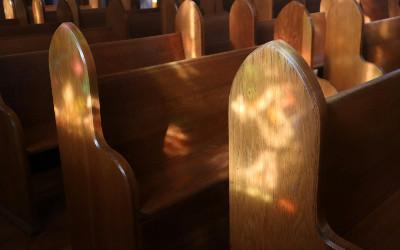OU receives funding to understand anti-Catholicism prejudice

The Open University (OU) has received £340,000 funding from the Leverhulme Trust to look into anti-Catholicism in the UK and Ireland since 1945. The project, which aims better to understand and gain insight into the nature of prejudice through the interface between psychology and history, started in April 2024.
John Wolffe, Professor of Religious History, is leading the project. He said: "'The last acceptable prejudice’ is the subtitle of a study by Philip Jenkins of anti-Catholicism in the present-day United States which raises significant questions for the UK. Jenkins argues that anti-Catholic prejudice remains widespread in America and is ‘acceptable’ because it is closely associated with otherwise liberal and progressive causes such as contraception, the rights of women and LGBTQIA+ people.”
By looking at historical events, organised anti-Catholic movements, and attitudes that are still prevalent born out of critique of the catholic church from a secular viewpoint, this research seeks to look at and track prejudice diversity in the UK and Ireland over time and explore differences and similarities.
The team also includes Professor of Social Psychology, John Dixon, Professor of Psychology & History, Jovan Byford and Research Associate in the History of Prejudice, Erin Geraghty. Together they bring extensive knowledge of the psychological and sociological literature on prejudice, having worked on numerous relevant research projects and published extensively on related issues of theory and methodology.
The project will enable better description and understanding of the history of significant anti-Catholic prejudice in the contemporary UK – including relevant contrasts and tensions between its component nations, and attitudes to continental Europe – and also how this is linked to other social, political, cultural, and religious attitudes and historical events. The outcomes of the project are flexible due to the sensitivity of the topics being discussed. However, the project team will look to document this prejudice and produce peer reviewed publications that can be used to inform others about prejudice and its contextual, historical, and psychological links.
Professor Wolffe added, “Our wider ambition is through the case study of anti-Catholicism to show how history, religious studies and psychology can complement each other in developing methodologies that enable us better to understand other forms of prejudice. We want to achieve something intellectually transformative.”
Contact our news team
For all out of hours enquiries, please telephone +44 (0)7901 515891
Contact detailsNews & articles

Grant recipients announced for the 2025 Open Business Creators Fund for Women in Business
The businesses selected to receive funding from the Open Business Creators Fund for Women in Business, (delivered by The Open University and sponsored by NatWest) have been announced.